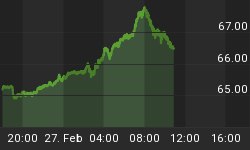For a majority of workers, failure at the workplace is deeply frowned upon and frequently incurs the ultimate penalty—dismissal, usually accompanied with a pittance for severance pay. Yet, in many ways, corporate executives remain above the rigmarole of a pay-for-performance model. A blue-chip executive can run a company to the ground and still be guaranteed a big payday in the form of a multi-million dollar golden sendoff. A few days ago, Equifax Inc., one of the largest consumer credit reporting agencies on the land, made headlines after agreeing to pay a total of $700 million to the U.S. government for claims tied to a massive data breach two years ago.
The data breach will go down as one of the largest ever after private information including social security data from 150 million consumers--about 56 percent of America’s population--was compromised.
The settlement includes $425 million for consumers, with the payout any affected customer can collect from the credit agency capped at $20,000. That included a $25-per-hour compensation for any time they spent resolving the mayhem left behind.
Former CEO Richard Smith, on the other hand, is set to collect ~$19.6 million in stock bonuses that cover part of his performance in the year the hack took place, not to mention a generous offer to cover his medical bills for life; a $24-million pension and $50,000 in tax and financial planning services.
That’s roughly 1,000x the maximum payout to affected customers.
Failure richly rewarded
But that’s not all.
None of Smith’s compensation will be docked by his former employer since Equifax has softened its clawback provision since 2017 to include damages to the company’s reputation. The clawback provision is meant to hold former top executives accountable if their actions cause damage to former employers.
Related: New Allegations Against Huawei Raise Tensions In Tech Cold War In essence, the fact that he has lost none of his generous benefits means that Equifax does not consider his departure a termination but rather a routine retirement (if that makes any sense).
Maybe the fact that Equifax, Inc.(NYSE:EFX) stock has managed to more than clawback all of its nearly 40-percent plunge after the heist has helped Smith’s case.

(Click to enlarge)
Smith certainly is not the first corporate executive to get off with a pat on his back following catastrophic developments under their watch.
Plenty of CEO’s have been richly rewarded for failure. Back in 2014, floundering US retailer Target paid ex-CEO Steinhafel more than $30 million, including his full pay for 2013/14, after he handed in his resignation.
Related: Chinese Investments In the U.S. Plunge 90% Under Trump
Curiously, it has become common practice for troubled companies to offer their CEOs a handsome pay hike just before a company goes under. It really is like airlifting the captain of a sinking ship and serving them a champagne brunch while leaving the other passengers to fight for their lives.
You could rationalize that CEOs and other high-flying executives of failing companies are not directly responsible for the sad state of affairs in their backyards—and you would probably be right. The fact is that, in many cases, these executives are simply guilty by association.
Equifax’s CEO blamed an unnamed employee for failing to communicate to the organization the importance of deploying an internal software patch. In a company of more than 10,000 employees, it would be unreasonable to expect him to monitor security issues at a highly granular level.
Nevertheless, there has to be some level of accountability involved. CEOs certainly benefit big-time via performance-based perks when employees perform exemplarily; they should, in equal measure, bear the full brunt of poor performance.
Or, at the very least, there should be financial consequences entrenched in law for companies like Equifax that handle sensitive customer data. As Rep. Joe Barton (R-TX) told Smith has lamented: “Under current law, you’re required to alert those whose account has been hacked, but there’s basically no penalty.’’
By Alex Kimani for SafeHaven.com
More Top Reads From Safehaven.com
















